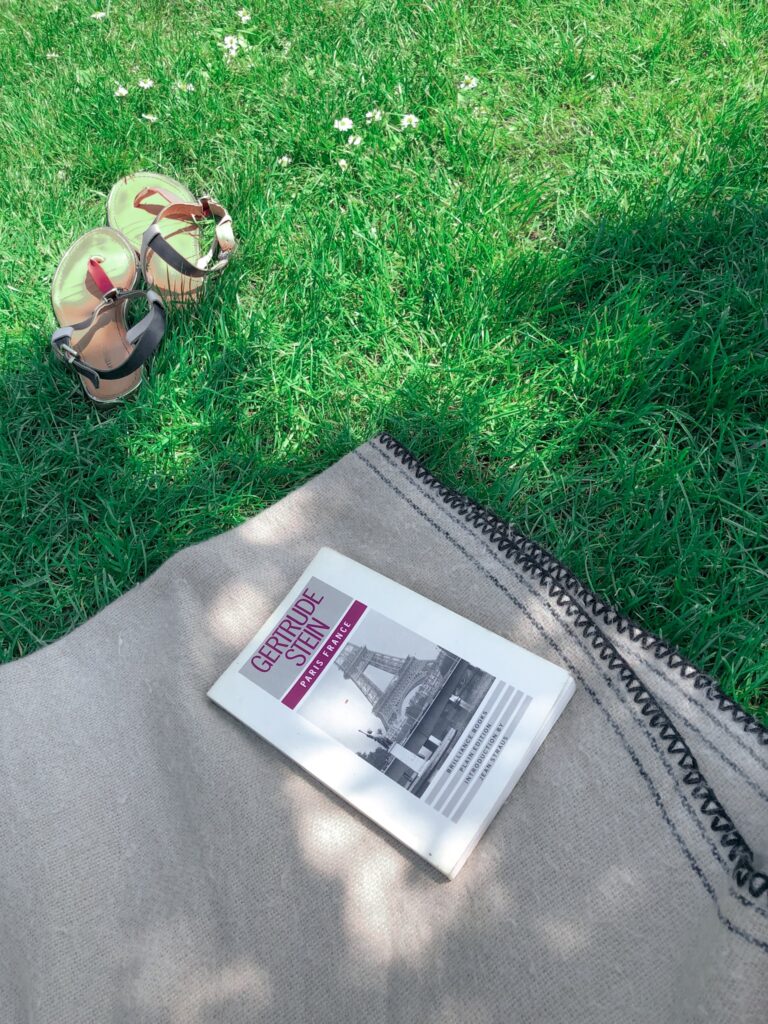This one is short and sweet so you can finish it in one sitting and then casually refer to it at dinner parties, sounding very sophisticated and well read.
Why pick Gertrude Stein’s Paris France up? If you are as obsessed with Paris of the 20th century as I am then Stein is someone you can’t miss out on. Especially when you get a little volume filled with her name dropping people like Picasso, Chanel and Fitzgerald – what a delight for a sunny afternoon in the sun!
First things first, when you first hear Gertrude Stein you might not be necessarily thinking of her writing per se, but rather her influence, her opinions…and her circle. To be spending an afternoon at her apartment in Paris meant spending that time in long, richly lubricated conversations with the likes of Fitzgerald, Hemingway, Dali and Picasso. But since the chances of that happening are so alarmingly non-existent, the closest you can get to the experience is picking up one of her books.
 Paris France is hard to describe. Stein wrote it in the late thirties, published it when Paris was occupied by the Nazis. All in all, expect a lot of thoughts on Paris, France, war time, the 20th century, England, the 19th century, Frenchmen, the countryside.
Paris France is hard to describe. Stein wrote it in the late thirties, published it when Paris was occupied by the Nazis. All in all, expect a lot of thoughts on Paris, France, war time, the 20th century, England, the 19th century, Frenchmen, the countryside.
It is just that – thoughts. A stream of them, never-ending (well up until the last page) and ferocious. This is not a story with a beginning, a middle and an end – it’s not like the natural growth of a century that she so well describes within the pages. This is certainly not a century-long novel encompassing large families and loads of generations. Yet, it does reflect on just that, too.
The writing is, of course, unique, not interested in conventional tropes, traditional punctuation or literary rules, rather following Gertrude’s natural train of thought. It is, therefore, fascinating if sometimes slightly confusing. Read the same paragraph more than once, there is no shame in it, darling.
By all means, Paris France won’t be everyone’s cup of tea, but the book is so short there is no harm in at least giving it a go. It is full of great quotes that don’t really work out of context, or as the French call them astuces. Thus making this a pleasure to read when you don’t want to dive head first into some heavy existentialism or aren’t quite ready to get invested in War and Peace just yet.
Short, sweet and to the point? Probably, even though there are a lot of points to be made here and some of them would be better understood after a second reading. Paris France is a quick read full of interesting insights into the ways of the French as observed by the most French American there ever was (actually, Julia Child can probably claim this title too) – take everything with a pinch of salt if you must, but this is still a great piece of fine twentieth century writing.
Real, deep and fleeting. That’s better.
Paris France is best enjoyed…
…two hours in the park on a sunny day and you might believe you are in France. Unless you are already there in which case: enjoy this book anywhere you want to!
